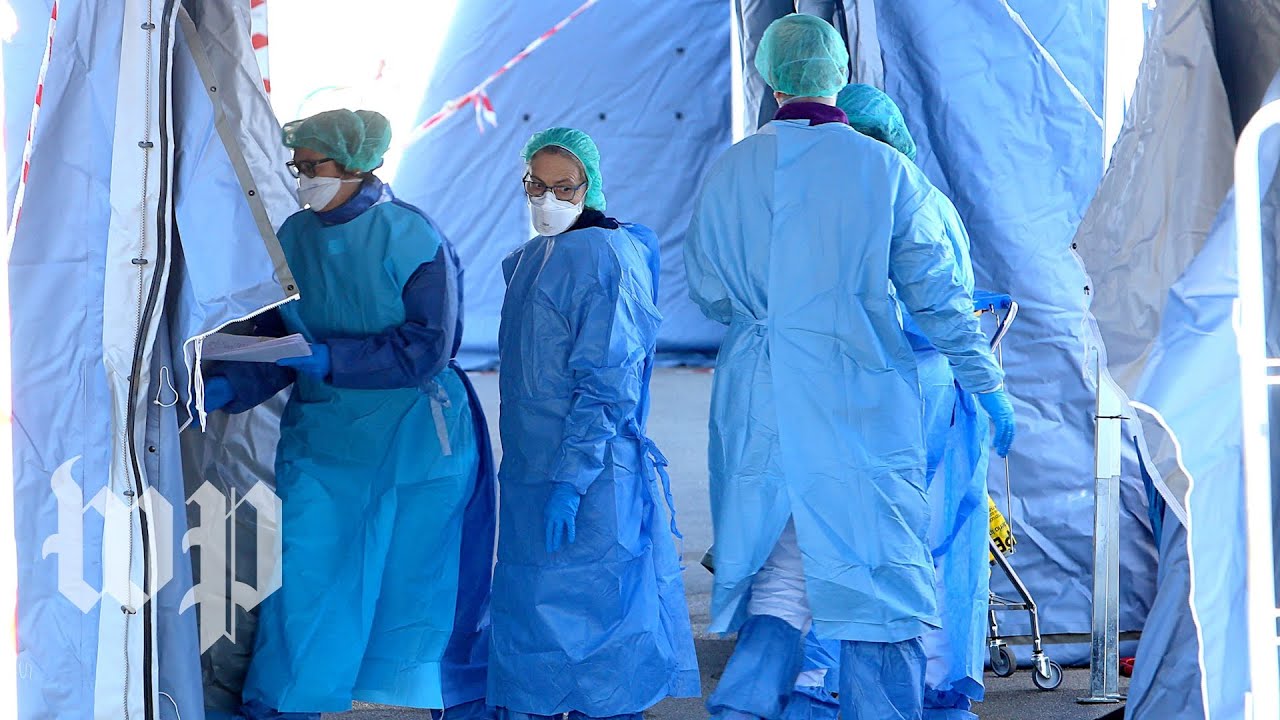-Ususally, here, there’s a lot of traffic. We just cannot move. Usually, here, you cannot find parking because it’s full of cars. But this is not the case — not today. I don’t know if you can hear the ambulance, but you just hear ambulances. -We live in the center of Rome. And Italy — Rome, especially Rome — is popular because of its restaurants, bars. And everything is ciompletely off.
There are no people around. -What have your lives been like since quarantine has gone into effect? -It’s completely different from before. I mean, you walk around, and you see other people, and you’re afraid to be close to them. You just go fast out, and then, you want to be back very fast. And now, it’s not easy to find food. In the market, you cannot find anything because everyone is running to buy food. Everything is very complicated now. -It’s sad. But it’s important to understand that everybody has to do something. No one is safe from the virus. -What kind of psychological effect is this having on you, in terms of not really knowing? Watching as the situation unfolds, and having to quarantine at home? -We are afraid of everything. I’m afraid for my baby. I just became a mom, so I’m — the idea that she could get sick, it’s very — it’s terrible. -Have there been sort of creative or unique ways that people have been trying to still keep in touch with each other? -Yes. Every day, at 6:00 p.
M . , people just open the windows, and they put loud music. And they communicate. [Indistinct talking] [Singing in Italian] -Now, I feel quite just tired, exhausted, at the end of the day. Just doing some very simple activity at home — I mean, just housekeeping stuff is enough to make you exhausted at the end of the day. [Speaks indistinctly] But now, it’s two weeks, actually. And at the beginning — the first three days, actually — had temperature going quite high the third, fourth day. Then, everything was, let’s say, calming down, but never leaving you completely okay. It’s like a very long flu, I would say. And again, I’m healthy. I’m quite young. I’m… sporty. So, I’ve got some resources.
<img src="Client error: `GET https://api.pexels.com/v1/search?query=corona+virus+italian+doctor` resulted in a `404 Not Found` response:
But the people like — exactly me currently in the intensive care, intubated, needing support to breathe. So, it means it’s not entirely predictable who’s going to have this progression. -So, tell uss about your colleagues — especially your colleagues that are on the front lines right now. What are their lives like? -The numbers of ventilated beds in the hospital in north Italy that are available are now very little, because 80% — more than 80% — are occupied now. And soon, they’re going to finish off any other beds. Means when someone is coming in hospital needing intensive care, it’s risky not to have any beds available. So, the pressure on these doctors is very high, because they are going to triage people in the real meaning of triage. Means you’ve got some chances of keep you under ventilation, or “You’re too old. You’re not going to get this treatment.” So, it’s very difficult for my colleagues. -Yeah. I can’t even imagine having to make that call as a doctor, when you want to save as many people as you can.
-Yeah. It’s not going to be possible. This is something that you countries where the situation is now not… bad, you have to think in advance about that. So, get ready. Get prepared. And dedicate resources to — in partiuclar to intensive care units. -What would your advice be to doctors in America? What should we be looking out for now? -You have to stay as much as possible at home, even if you are not one of the clusters [indistinct], you have to stay home as much as possible. It is quite — Now, the strong message is passing through the media in Italy. And of course, now, we are in a tight situation. But the only way to reduce the spread of the infection is recucing the number of people you meet..
